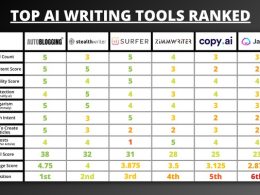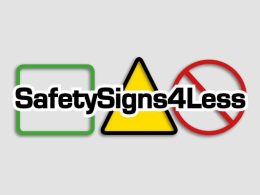- Consumer Champion Angellica Bell fronts campaign to call out online rip-offs
- CMA publishes letter to UK businesses detailing its ‘red lines’ when using price reduction and urgency claims
- New poll reveals two thirds (67%) of UK consumers say the impact of cost of living makes them more desperate to find a deal
The Competition and Markets Authority (CMA) is launching a new phase of its successful ‘Online Rip-Off Tip-Off’ campaign, which this year is urging consumers to report online rip-offs via a new digital reporting form. The campaign, fronted by consumer champion and Martin Lewis Money Show co-presenter Angellica Bell, aims to crack down on practices that could break the law and urges shoppers to call out online rip-offs.
The campaign seeks to enable consumers to spot and avoid misleading online sales tactics, and to report businesses which engage in misleading tactics. These include: pressure selling, hidden charges, subscription traps and fake reviews. These tactics are designed to mislead and push people to part with their cash online.
Tackling the problem from both angles, the CMA is also publishing today a letter to UK businesses detailing its ‘online red lines’ on misleading price reduction and urgency claims – which are a type of pressure selling. It provides practical illustrations of where common online tactics may be misleading consumers or applying unfair pressure. The advice is for all businesses that sell or promote products online to UK shoppers, so they can stop sales practices that could break the law.
The announcement comes as a survey of 3,700 UK adults* shows that 67% say the cost-of-living pressures have made them more desperate to find the best deals, while 71% believe they are ‘saving money’ by purchasing deals that are on offer – some of which may not be genuine.
The poll also found:
- 1 in 4 (24%) of UK consumers said they had fallen victim to sneaky online sales tactics
- 23% didn’t realise tactics such as ‘15 mins left of sale’ or ‘buy now’ can sometimes be false or misleading
- 68% thought these types of misleading tactics should be banned
Angellica Bell, consumer champion and co-presenter of The Martin Lewis Money Show, who is supporting the campaign, said:
“We know that the rising cost-of-living is putting a strain on shoppers across the UK. Some online businesses are using sneaky sales tactics to make us part with our money when household budgets are already stretched. We all feel the pressure of securing bargains, making us more susceptible to being ripped off. It’s frustrating when this happens and it’s time we call out these online retailers and report them to the CMA.”
George Lusty, Senior Director for Consumer Protection at the Competition and Markets Authority, commented:
“Now more than ever, every penny counts and the CMA is concerned that some businesses are using underhand tactics designed to part shoppers from their cash. This poll is just the tip of the iceberg as we believe the true number of victims of these rip-offs is much higher as they are often extremely difficult to spot.
“That’s why businesses using urgency and price reduction claims need to consult the CMA’s new advice. It outlines what businesses need to do when designing their online shopping experiences to be sure they comply with the law.”
Fatal Injuries to Members of the Public and Workers Between 2014 and 2022 by Industry
| Industry | Fatal injuries to members of the public (2014-2022) | Fatal injuries to workers (2014-2022) | Total Fatalities Recorded |
| Public administration and defence | 259 | 171 | 430 |
| Transportation and storage | 302 | 113 | 415 |
| Construction | 35 | 293 | 328 |
| Agriculture, forestry and fishing | 32 | 223 | 255 |
| Human health and social work activities | 205 | 8 | 213 |
| Manufacturing | 2 | 159 | 161 |
| Wholesale and retail trade | 59 | 82 | 141 |
| Information and communication | 26 | 86 | 112 |
| Arts, entertainment and recreation | 63 | 21 | 84 |
| Water supply | 20 | 61 | 81 |
Methodology
These figures were sourced from a raw data set provided by HSE. The original data consisted of individual data sets for each year from 2014/15 up until 2021/22. Our experts calculated the overall number of fatalities for workers and members of the public within this time span.









